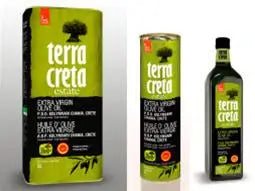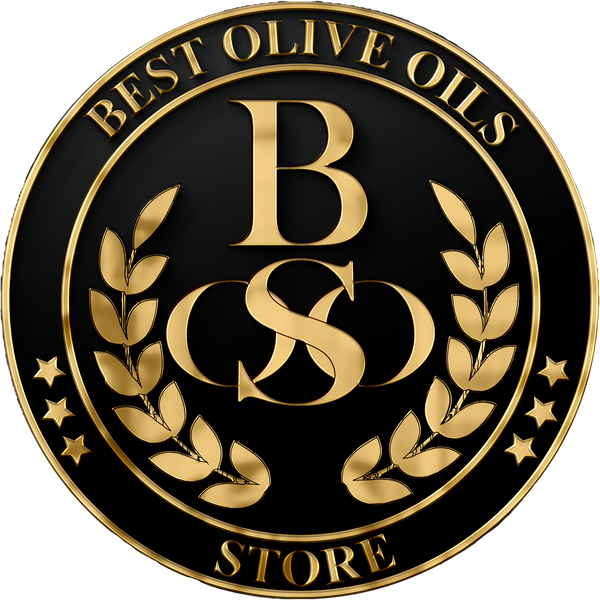Terra Creta Grand Cru

Terra Creta Grand Cru
Gold Award - Terra Creta Grand Cru
At Dubai Olive Oil Competition
Early Harvest Edition 2025
Ultra Premium Olive Oil
🥇 Terra Creta Grand Cru wins Gold at DUBAIOOC 2025!
We are proud to announce that Terra Creta Grand Cru, the exceptional extra virgin olive oil produced in Crete, Greece, has been awarded the Gold Medal at the 2025 edition of the Dubai Olive Oil Competition – Early Harvest.
Crafted exclusively from handpicked Koroneiki olives grown in the renowned Kolymvari region, this monovarietal oil embodies the rich agricultural heritage of Crete. The olives are meticulously harvested and cold-pressed within hours to preserve their full aroma and nutritional value.
Terra Creta Grand Cru boasts a complex flavor profile, featuring notes of green almond, fresh herbs, and a balanced bitterness and spiciness that reflect the unique terroir of the region. With an exceptionally low acidity of just 0.19%, this oil offers a gentle and fresh taste, setting it apart as one of the premium extra virgin olive oils from Crete.
We invite all lovers of fine olive oil to discover this Greek treasure on our platform: bestoliveoils.store
Experience the excellence of Terra Creta Grand Cru and bring the authentic taste of Crete to your table!






Terra Creta Extra Virgin Olive Oil, produced in the heart of Kolymvari, Crete, combines centuries-old olive cultivation traditions with modern techniques. Established in 2001, Terra Creta ensures exceptional quality through its state-of-the-art mill, where Koroneiki olives are cold-pressed within hours of harvest. This premium oil retains its vibrant green color and fresh, fruity aroma, offering a well-balanced flavor profile with subtle notes of almond, artichoke, and a peppery finish. Rich in antioxidants and polyphenols, Terra Creta brings the authentic taste of Greece to your table.
PRODUCTS
Extra Virgin Olive Oil
During cultivation and olive oil production, everything that comes from the olive tree is returned back to the environment. Strict organic processes are adopted throughout the cultivation and processing of this wonderful extra virgin olive oil.
Our Estate Organic Extra Virgin Olive Oil exhibits enticing flavours of warm butter with hints of black pepper
During cultivation and olive oil production, everything that comes from the olive tree is returned back to the environment making this a truly organic product
The olive leaves removed during the processing are fed to local farm animals; the water from washing the olives is returned to the olive groves for irrigation and the pits are used to warm up the water of our olive mill.
No chemical fertilizers or pesticides are employed making us proud for safeguarding our olive groves and nature. This organic olive oil is packed in recyclable materials.
Help us help the environment by recycling it.
Our olive oil is the only fully traceable oil in the world. Visit www.terracreta.gr and discover how it is produced step by step.
It is available in convenient 250 ml and 500 ml dark glass bottles.

Estate Organic Extra Virgin Olive Oil

Estate PDO Kolymvari Extra Virgin Olive Oil

Extra Virgin Olive Oil in decorative bottles

Estate Organic Extra Virgin Olive Oil in spray bottle

Cultivation is the most important step in the production process. We feel privileged to live in a country where olive cultivation dates back to 4,000 B.C., documented during the Minoan civilization. Cretan farmers have literally grown up along side their trees as, traditionally, land is inherited from generation to generation. A deep love for their land and a profound respect for their olive trees is the main reason Cretan farmers still cultivate their olive trees using traditional methods. Modern production models of super-intensive cultivation, such as those adopted in Spain, in California and other new producing countries are not acceptable to us or practiced at Terra Creta. We believe that high quality olive oil simply cannot be produced with the excessive use of heat and chemicals or by stressing the tree just to produce a large crop.

The most abundant olive variety in the region of Kolymvari is the Koroneiki olive. This very small olive produces an exceptionally fine, fruity, green, aromatic olive oil.
It is cultivated mainly on the island of Crete, in regions of the Peloponnes and on the islands of Ionian sea. 60% of the Greek olive groves are of Koroneiki variety. The tree is between 5 to 7 meters in height and has dark-green leaves of about 5,47 cm in length and 1.03 cm in width. The olive fruit has an average weight of 1,3 grams and the ratio between flesh and the pit is 6,6:1, while the percentage of olive oil can be up to 27%. It is considered to be a very productive variety and suitable for warm – dry climates. It can be cultivated up to 500 meters above sea level. The second most popular variety is the Tsounato variety, an unexplored treasure and a favorite of locals.
Cultivation
Olive trees on Crete range in age of 50 to 3,000 years old.
Cultivation is still carried out in the traditional Cretan way in our olive groves.
The cultivation cycle starts in mid-February immediately following the end of the harvest.
Pruning is a key stage that formulates the shape of branches to allow enough air and sun exposure on the clusters of olive fruit.
Pruning an olive tree is truly an art.The farmer must carefully prune each tree individually according to its needs, maintaining the overall, long-term plan identifying the shape and production history of every single tree.

The next important step is to apply fertilizer to the soil, when necessary, to stimulate the soil and ensure that the proper nutrients are retained from season to season.8 At Terra Creta, we use fertilizer only for sustainability of the tree. Frequently, the only nutrients needed are in the leaves and branches that have naturally fallen during the season.
They get a plough into the soil and are regenerated as food for the olive tree.
The grass underneath the tree must also be cut and the weeds removed in order to allow water and nutrients to be better absorbed, as well as to prevent them from hindering the harvest.
In the cultivation process, removal of weeds is carried out by mechanical means (tractors or cutters) and, in very rare cases, a slight spraying used.
On the rare occasion when more intensive weed control measures must be taken, it is always applied lightly and with as little as possible in order to better sustain the environment and allow the tree to flourish.
www.terracreta.gr









